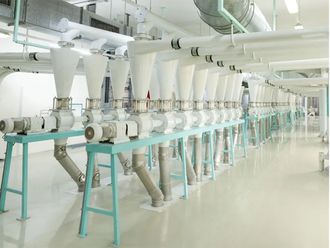Manila: Chinese regulators appear to have successfully popped a mini-bubble for now in steel and other commodity futures, scaring off speculators who piled in last month to drive steep gains in the prices of raw materials from coal to cotton.
China has vowed that it won’t allow its commodity futures markets to become a “hotbed” for speculators, fearing that price movements not based on fundamentals could skew investment decisions and hamper efforts to rein in overcapacity.
The price of the most traded steel product on the Shanghai Futures Exchange — which jumped nearly 17 per cent in just four days in mid-April — fell for the second consecutive day on Wednesday and has given up all of its gains since the buying flurry began.
At the same time, the level of open interest — the number of open contracts — has dropped sharply, suggesting many investors have liquidated their positions before prices fall even further.
“Speculative funds have exited the market at the moment and I think it’s time to take a break,” said a researcher at a Shanghai-based fund, who declined to be named because he is not allowed to speak to media.
Prices retreated after commodity exchanges in Dalian, Shanghai and Zhengzhou increased transaction costs and widened trading limits, making speculative investment more difficult.
David Flanagan, chief executive of Australian iron ore miner Atlas Iron, said last month that “mom and pop” trading was affecting prices and cited a meeting with the manager of a Chinese steel mill.
“Her maid is earning a multiple of her salary by trading iron ore futures,” he told reporters in Perth. “That has an influence on the iron ore price.” REBAR GIVES UP GAINS Reinforced steel used in construction, known as rebar, led the mid-April surge, along with iron ore, coking coal and coke as investors jumped on the coattails of a rally in steel prices after China boosted spending on construction to spur growth.
The buying spread to other commodity futures including cotton and eggs, raising fears of a boom-and-bust cycle similar to China’s stock market crash last summer.
Open interest in rebar on the Shanghai exchange fell to 2.7 million lots this week from 3.7 million lots on April 18. On the Dalian Commodity Exchange, open interest in its most-active iron ore contract fell to less than 800,000 lots on Tuesday, the lowest since November 2015.
But a surge in open interest on nickel futures in Shanghai as traders bet on a recovery in prices from 13-year lows led a broker to warn that trading in the metal could soon face curbs.
“It will probably be only a matter of time before Chinese regulators step in to dampen this trading,” broker Triland said in a note this week.
Open interest on Shanghai nickel has doubled to more than 650,000 lots in the past month, outstripping trade in London as traders look to improving order books at stainless steel mills in China.
In the long run, however, analysts said prices would be dictated by the fundamental drivers of supply and demand.
“Ultimately the fundamentals are going to dictate (direction) even if we get these brief periods where prices are volatile,” said Daniel Hynes, commodity strategist at ANZ Bank.












